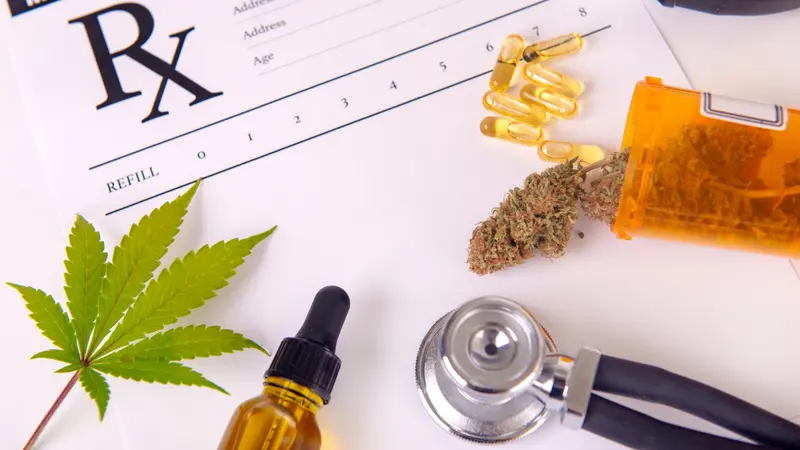

Emerging

Emerging
Medical Marijuana Moves out of the Shadows
Marijuana, or cannabis, is now approved for medical use in 33 states and the District of Columbia in the US, although it remains federally prohibited. While its recreational use dates back many decades, researchers are only just beginning to tap into its many therapeutic applications.
Dr. Ethan Russo, board certified neurologist and a leading psychopharmacology researcher, discussed the future of medicinal marijuana on the Body of Wonder podcast with hosts Dr. Andrew Weil, integrative medicine expert, and Dr. Victoria Maizes, executive director of the Andrew Weil Center for Integrative Medicine.
Dr. Russo explained that humans have innate chemicals that resemble the activity of cannabis. This endocannabinoid system (ECS) is a major regulator of physiological function throughout the body, particularly in the brain. He believes this explains the versatility and exceptional potential for treating a variety of conditions with cannabis.
Currently there are cannabis-based medicines approved in 30 countries outside of the US for treatment of various conditions including epilepsy, multiple sclerosis, pain, and the side effects of chemotherapy treatment. Dr. Russo believes cannabis may prove useful in treating degenerative diseases such as Alzheimer’s.
Although cannabis can have side effects when used in excess, with appropriate dosing and administration, Dr. Russo believes it’s one of the safest drugs available to doctors, and unlike opioid drugs, it’s not possible to fatally overdose on cannabis. Dr. Russo and his colleague Caroline McCollum wrote in the European Journal of Internal Medicine that dosing for most conditions will range between 2.5mg to 10mg of THC—the principal psychoactive constituent in cannabis—up to three times per day. There are some conditions for which higher doses may be necessary, such as cancer, epilepsy, schizophrenia, and anxiety.
Cannabidiol (CBD), the second most prevalent active ingredient in cannabis, is less potent, so higher doses may be required. Dr. Russo points out that CBD in its pure form may not be as effective: “There’s almost nothing that CBD does that wouldn’t be enhanced by having at least a trace amount of THC” in the dose. For the majority of conditions, the best form of administering cannabis is a tincture or oral preparation.
Lack of regulation in the industry is a major concern, says Dr. Russo, who recommends patients obtain a recent certificate of analysis for every preparation of whatever source of cannabis is used. Each chemical compound in cannabis has its own particular pharmacology, so it is important to understand how much of each is in the preparation.
He believes there is potential for the use of cannabis in treating a wide variety of disorders, including autoimmune diseases, type 2 diabetes, cancer, and as an antibiotic and weight-loss aid. One study of medical marijuana in Canada showed that people who began using marijuana medicinally were able to reduce dosage or taper off a variety of medicines, most opioid drugs.
Some pharmaceutical companies have developed synthetic analogs for cannabis, but to date they’ve gained little traction in the market. Dr. Russo says these isolated single agents are missing the full spectrum of benefits offered by the plant: “My strong bias . . . is that nature does it better.”
REFERENCES
Weil, A., & Maizes, V. (n.d.). Medical Cannabis with Dr. Ethan Russo (No. 14) [Audio podcast episode]. In Body of Wonder. Andrew Weil Center for Integrative Medicine, University of Arizona. https://integrativemedicine.arizona.edu/podcast/episode14_russo.html


 By
By







